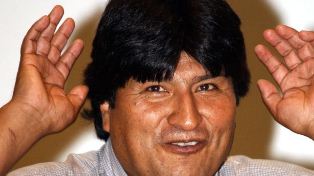
Tehran, April 17: Bolivian President Evo Morales says that Latin American countries are in rebellion against the United States after years of domination by their northern neighbor.
He made the remarks on Monday in Cartagena, Colombia on the last day of the Summit of the Americas, which gathered leaders and representatives of members of the Organization of American States (OAS), which includes all of the countries of the Western Hemisphere except Cuba.
“It seems the United States still wants to isolate us from the world, it thinks it can still manipulate Latin America, but that's ending,” Morales said.
“What I think is that this is a rebellion of Latin American countries against the United States,” he added.
The United States emerged from the summit in Colombia increasingly isolated, as nearly 30 regional leaders protested the continued exclusion of Cuba by refusing to sign a joint declaration.
The US insistence that Havana implement democratic reforms before returning to the hemispheric family led to a clash with a united front of both leftist and conservative governments that see Washington's policy toward Cuba as a relic of the Cold War.
However, some Latin American leaders, such as Mexican President Felipe Calderon, expressed the opinion that US President Barack Obama is not as bad as previous US presidents who attended the Summit of the Americas.
“I think it's the first time I've seen a president of the United States spend almost the entire summit sitting, listening to all the concerns of all countries,” Calderon said.
“This was a very valuable gesture by President Obama,” he added.
At a joint news conference with Colombian President Juan Manuel Santos, Obama emphasized that his administration had made some changes in its policy toward Cuba already and was open to more if it saw more signs of democratic reforms.
“I'm not somebody who brings to the table here a lot of baggage from the past, and I want to look at all these problems in a new and fresh way,” the US president said.
However, Morales denounced the “US dictatorship over South America and the Caribbean,” adding, “The United States and Cuba have something in common: both send troops to other countries. Cuba sends medical care; whereas the United States sends troops to end lives. That's the big difference.”





Comments
Add new comment